FISHTALES
We look forward to seeing you for EPISODE 1 on Tuesday, MAR 12 at 6:30pm.
Join us on ZOOM to hear some good news from around the Watershed.
Just south of Point No Point, and a quick paddle down the coast from Eglon Beach,
another long-awaited natural process restoration has broken ground.
There is so much potential in this unnamed stream as it fights past invasive reed canary, and tries to carve its way to the Sound.
The original vision for stream restoration & bulkhead removal has bloomed into an exciting design for reconnection!
In the summer of 2023, we removed a fish passage barrier on the southern property, paving the way for Phase II.
In 2024, we will restore a beach, give steelhead S of the bridge a chance to migrate, and provide chum & coho in the Sound some promising riparian habitat upstream for spawning & rearing.
Meet Donna (pictured right): one proud legacy partner, standing on what we’re calling the “new before photo”. Paul Tappel’s bridge design – of cedar & weathering steel – blends into the landscape. It raises Donna out of the channel, connecting her to the the sense of place – to the Sound, to Mt. Baker, to Mt. Rainier – from its deck.
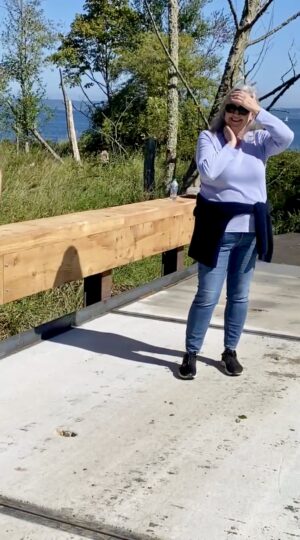
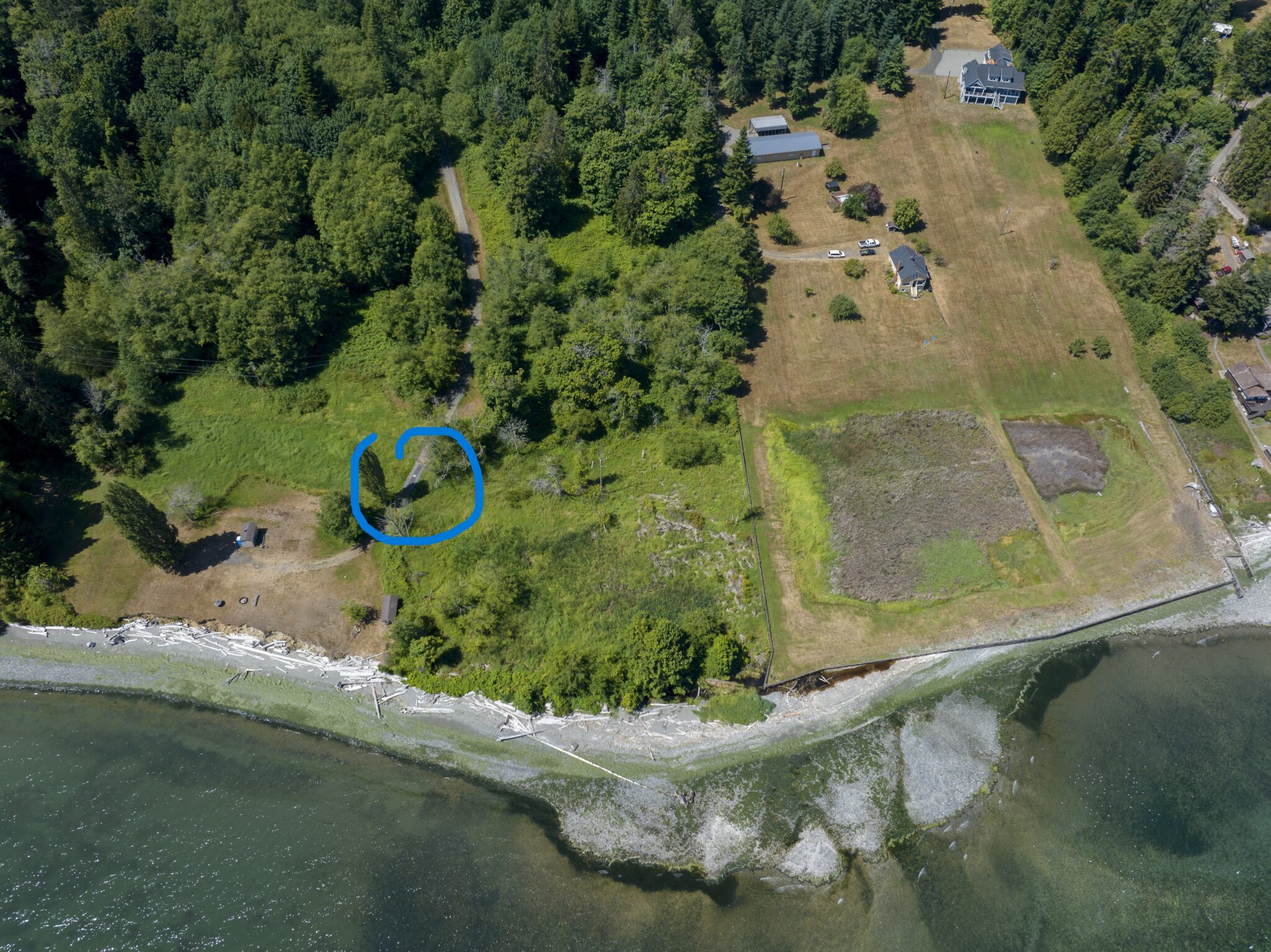
The embayment restoration we’ve embarked upon will serve, among other salmonids, juvenile Chinook, whom we know outmigrate along this eastern Kitsap Shoreline from throughout the region. We all look forward with Donna to the changes to come – beyond and below the new bridge – with tidal reconnection.
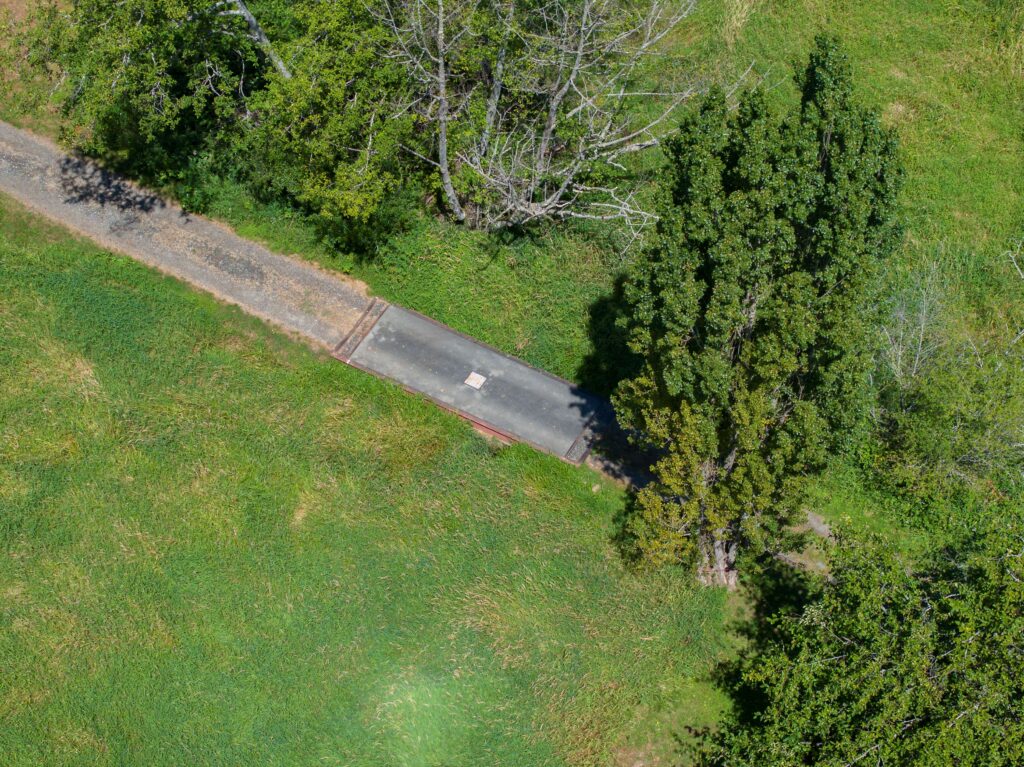
Phase II of the Rose Point Estuary Restoration project is poised to move forward next summer. Features will include introducing sinuosity to the Moreland Wetland, and returning a complex, historic Salt Marsh to the adjacent property and to the Puget Sound with bulkhead removal. Stay tuned for the “after photo” in 2024!
Like Point No Point, the Rose Point Estuary Restoration Project would not be possible without the combined curiosity and longtime vision and commitment of North Kitsap neighbors (Donna Moreland and Mike Kotizin). We’re grateful to Blue Coast Engineering, for the heart and exhaustive research that went into Jessica Côté’s preliminary and final designs, and the critical permitting and construction oversight provided by Jennifer Allen. The Rose Point Bridge is generously funded by a grant from the Washington State Department of Natural Resources’ Family Forest Fish Passage Program (FFFPP). The greater Estuary Restoration design and construction is sustained by grants from WDFW’s Estuary & Salmon Restoration Program (ESRP), the Pacific Marine and Estuarine Fish Habitat Partnership (PMEP), Kitsap County, the Puget Sound Acquisition and Restoration (PSAR) fund, and generous funding and monitoring support from the Suquamish Tribe.
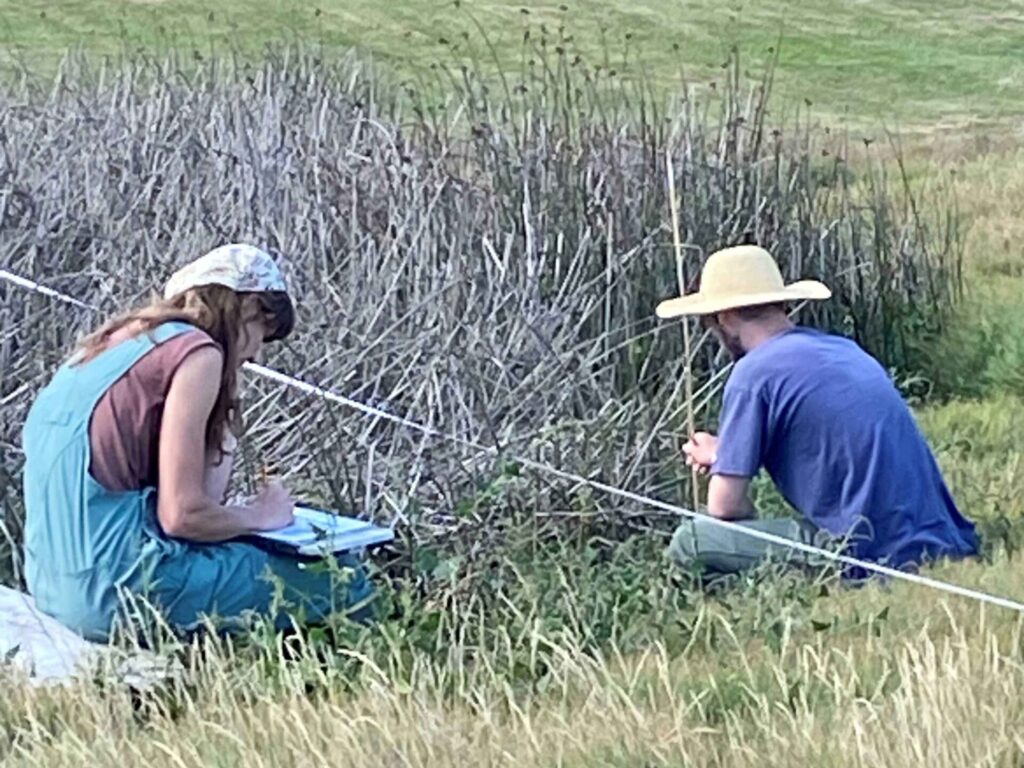
VEGETATION SURVEYS – SEPT 2023
Hanna Brush & Theo Suver (left to right), field biologisist from the Suquamish Tribe.
The Suquamish Tribe is funding a number of elements of the Rose Point Estuary Restoration. Their long-range investment provides valuable monitoring at Rose Point. Pre-construction, surveys give us all a baseline from which to compare to as the project proceeds, and data collected here is helping to inform the tribe’s study of estuaries regionally. This winter, the tribe is dedicated to the pro-active relocation of a septic system on the property to reduce any risk of contamination to the estuary in the future.
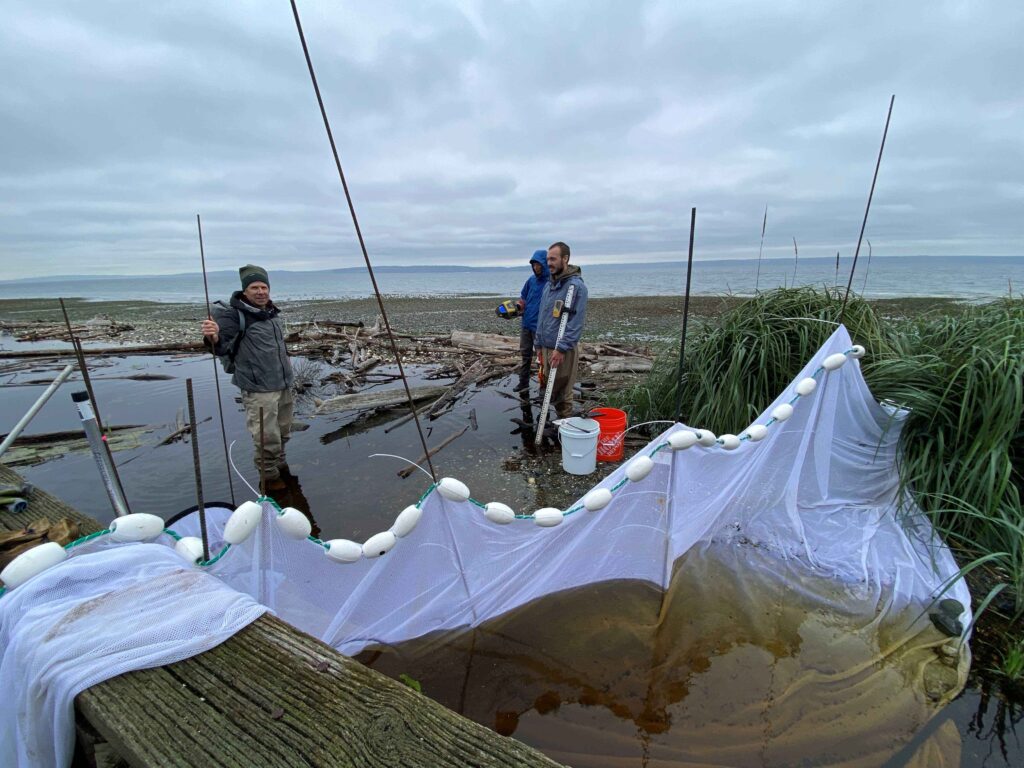
FYKE NET FISH SURVEY, OCT 2023
Steve Todd, Salmon Recovery Biologist, and Hanna Brush & Theo Suver, field biologists (left to right) from the Suquamish Tribe.